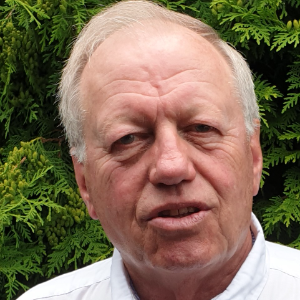Title : Financing efficient healthcare
Abstract:
“Financing Efficient Healthcare” is a core problem in all healthcare systems. Based on the "Ulm Legacy", we present four pillars that may bear the financial burden of efficient health care. The nursing profession might be an ideally suited profession to take on this central social role of health care.
The "Ulm heritage" goes back to Albert Einstein (*Ulm 1879) and the hochschule für gestaltung hfg ulm (Ulm Academy of Design 1953 - 1968). Einstein admonished, "A problem cannot be solved by the way of thinking that caused it." The hfg ulm taught the rules of American designers and architects e.g., "Form Follows Function", and, after the experiences of National Socialism, demanded not only to develop individual but universally valid solutions with socio-political relevance. This "Ulm legacy" provides the methodological guidelines for developing the four pillars necessary to carry the burden of efficient healthcare delivery.
The first pillar includes answers to the three Cochrane Hill questions (Can it work? Does it work? Is it worth it?) that need to be answered before a health intervention is included in the routine profile of daily care. “Can it work” describes the objective “Proof of Principle (PoP)” using experimental Randomized Controlled Trials (RCTs). “Does it work” describes the objective “Real-World Effectiveness (RWE)” using non-experimental “Pragmatic Controlled Trials (PCTs)”, and “Is it worth it” describes the subjective “Value” using various methods of Complete Economics Analyses (CEAs).
The second pillar describes the four thresholds that are essential to avoid overuse of healthcare. It quantifies the threshold a burden of a health problem must exceed to justify treatment and the threshold that separates effective from ineffective treatments. Each of these two thresholds shall be defined by its 'clinical relevance' and confirmed by its statistical significance: Not every cold requires hospitalization and not every pill reduces the burden of disease. Without these four thresholds, it is impossible to differentiate between valuable and worthless interventions.
The third pillar explains why RWE's proof is like squaring the circle: To prove the effects of health care under the non-structured conditions of natural supply chaos, care must be offered under these chaotic conditions. However, valid results of care can only be analyzed under structured conditions. This squaring of the circle can be successfully demonstrated by replacing experimental randomization with non-experimental Bayes' statistics. This exchange of methods requires in-depth clinical experience in dealing with suitable endpoints for the detection of different endpoint dimensions and knowledge of endpoint-specific risk profiles of individual patients.
The fourth pillar is a complementary confirmation of the need for the three above pillars. According to the Chinese proverb “Man is the best medicine for man” we are using different examples summarized as “Clinical Economics (CLINECS)” for description of objective (RWE) and subjective values of healthcare of individual and societal perspectives. These examples include misinterpretations of "excess mortality" and results of "polymerase chain reaction (PCR)", and useful concepts on the “safety loop” and the “Y-nurse concept”. Qualified Y-nurses are asking the very wholesome “why”-questions.



